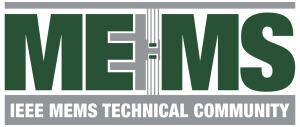Dr. Zhang is a Professor of the Department of Mechanical Engineering at the University of North Texas (Denton, TX). He received his B.S. in Engineering Mechanics from Hunan University, Changsha, China in 1997, his M.S. degree in Solid Mechanics from Northwestern Polytechnical University, Xian, China, in 2001, and his Ph.D. degree in Engineering Mechanics from University of Nebraska (Lincoln, NE) in 2007. He then worked as a postdoctoral researcher in Ohio State University’s Department of Material Science and Engineering in 2008. His research interests include innovative piezoelectric sensing devices for applications in advanced manufacturing, oil and gas exploration, and nuclear power plant monitoring; structural health monitoring and nondestructive test methods. He is a technical committee member of ASME Adaptive Structures & Materials Systems Branch.
Organizer Type: Acoustic and Ultrasonic Sensors
Bernhard Jakoby obtained his Dipl.-Ing. (M.Sc.) in Communication Engineering and his doctoral (Ph.D.) degree in electrical engineering from the Vienna University of Technology (VUT), Austria, in 1991 and 1994, respectively. In 2001 he obtained a venia legendi for Theoretical Electrical Engineering from the VUT. From 1991 to1994 he worked as a Research Assistant at the Institute of General Electrical Engineering and Electronics of the VUT. Subsequently he stayed as an Erwin Schrodinger Fellow at the University of Ghent, Belgium, performing research on the electrodynamics of complex media. From 1996 to 1999 he held the position of a Research Associate and later Assistant Professor at the Delft University of Technology, The Netherlands, working in the field of microacoustic sensors. From 1999 to 2001 he was with the Automotive Electronics Division of the Robert Bosch GmbH, Germany, where he conducted development projects in the field of automotive liquid sensors. In 2001 he joined the newly formed Industrial Sensor Systems group of the VUT as an Associate Professor. In 2005 he was appointed Full Professor of Microelectronics at the Johannes Kepler University Linz, Austria. In 2020 he became a Fellow of the IEEE. He is currently working in the field of liquid sensors and monitoring systems.











